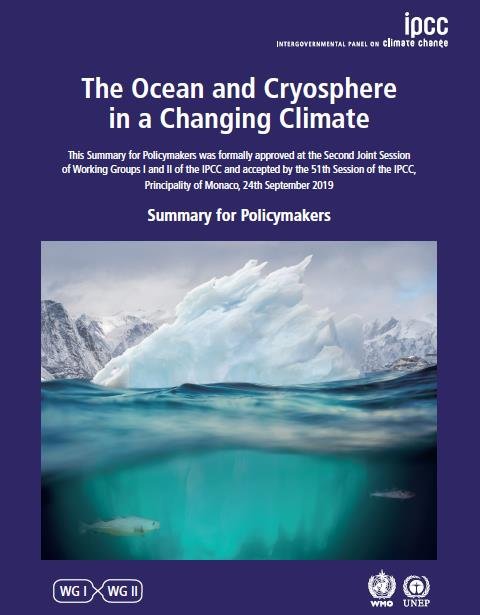- Share this article
- Subscribe to our newsletter
IPCC Special Report: The Ocean and Cryosphere in a Changing Climate
The Special Report on the Ocean and Cryosphere in a Changing Climate (SROCC) published by the Intergovernmental Panel on Climate Change (IPCC) in late September 2019 is the third in a series of Special Reports produced in the IPCC’s Sixth Assessment Cycle. It was prepared by 104 authors and review editors from 36 countries, 19 of which are developing countries or economies in transition.
The report provides new evidence for the benefits of limiting global warming to the lowest possible level – in line with the goal that governments set themselves in the 2015 Paris Agreement. Strongly reducing greenhouse gas emissions, protecting and restoring ecosystems, and carefully managing the use of natural resources would make it possible to preserve the ocean and cryosphere as a source of opportunities that support adaptation to future changes, limit risks to livelihoods and offer multiple additional societal benefits.
Education is important to enhance climate change
The report gives evidence of the benefits of combining scientific with local and indigenous knowledge to develop suitable options to manage climate change risks and enhance resilience. This is the first IPCC report that highlights the importance of education to enhance climate change, ocean and cryosphere literacy.
The ocean and the cryosphere – the frozen parts of the planet – play a critical role for life on Earth. A total of 670 million people in high mountain regions and 680 million people in low-lying coastal zones depend directly on these systems. Four million people live permanently in the Arctic region, and small-island developing states are home to 65 million people.
Global warming has already reached 1°C above the pre-industrial level, due to past and current greenhouse gas emissions. There is overwhelming evidence that this is resulting in profound consequences for ecosystems and people. The ocean is warmer, more acidic and less productive. Melting glaciers and ice sheets are causing sea level rise, and coastal extreme events are becoming more severe.
Adaptation depends on the capacity of individuals and communities
Knowledge assessed in the report outlines climate-related risks and challenges that people around the world are exposed to today and that future generations will face. It presents options to adapt to changes that can no longer be avoided, manage related risks and build resilience for a sustainable future. The assessment shows that adaptation depends on the capacity of individuals and communities and the resources available to them.
The IPCC Special Report is a key scientific input for world leaders gathering in forthcoming climate and environment negotiations, such as the UN Framework Convention on Climate Change Conference (COP25) in Chile in December 2019.
(IPCC/ile)
More information and download the report The Ocean and Cryosphere in a Changing Climate (SROCC):https://www.ipcc.ch/srocc/home/





Add a comment
Be the First to Comment